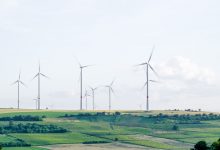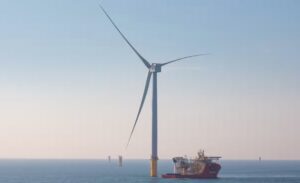Renewable power sources covered around 57 percent of Germany’s gross electricity consumption in the first half of 2024, preliminary figures published by the Federal Environment Agency (UBA) have shown.
Generation from renewable sources reached 147 terawatt hours (TWh), rising by nine per cent compared to the same period of the previous year.
“It is a success that the share of renewables in electricity production continues to grow,” UBA head Dirk Messner said.
However, Germany still needs to accelerate renewable expansion capacity to meet its climate and energy targets, especially in the solar photovoltaics (PV) sector, he warned.
Messner called for planning security and for the careful further development of subsidy mechanisms, as well as for a way to keep grid fees in check in areas of high renewable expansion.
In the first six months of 2024, wind power accounted for the largest share of renewable electricity generation (around 51%), followed by PV (24%), biomass (15%) and hydropower (8%).
Compared to the first half of 2023, wind power increased by ten percent, largely due to windy winter months and the addition of new turbines, while added capacity also led to a 13 percent-increase in electricity production from solar PV.
Hydropower generation increased by 12 per cent due to unusually high levels of precipitation in the first half of the year.
Germany is aiming for 80 per cent renewable power in its gross electricity consumption by 2030, with on- and offshore wind power considered the most important sources.
This article was originally published on Clean Energy Wire. Republished here under a “Creative Commons Attribution 4.0 International Licence (CC BY 4.0)” . Read the original version here.








